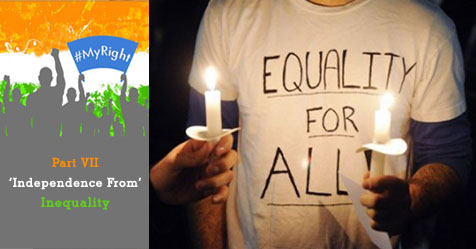MyRight: Independence From Inequality
Related Articles
Sreeleela Becomes a Doctor at 24, Balances Film Career and Education
South Indian cinema has witnessed the remarkable achievement of Sreeleela, a rising actress who has successfully completed her MBBS at the age of 24....
Jamiat Ulama-i-Hind Leader Critiques Government’s Mandate on Vande Mataram
Arshad Madani, President of Jamiat Ulama-i-Hind, expressed strong objections on Thursday regarding the Union Government's recent ruling mandating the recitation of all six stanzas...
PM Modi Discusses Discipline, Ways to Handle Exam Pressure with Students in Latest Episode of ‘Pariksha Pe Charcha’
Prime Minister Narendra Modi held a special interactive session with students from various parts of India during the latest episode of Pariksha Pe Charcha...


